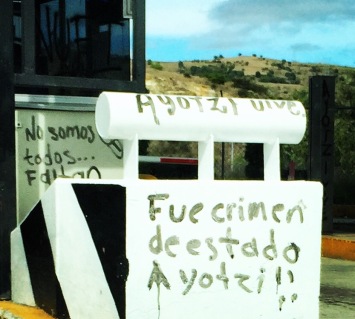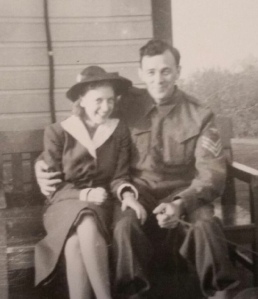
In law school, my criminal procedure professor taught me, “if the law isn’t on your side, argue the facts. Appeal to people’s emotions.” Basically, bullshit.
I found myself doing this all the time for defendants, in tiny, windowless rooms with a screaming cop on one side of me and a prosecutor on the other. “I know my client was going 110 in a school zone … for disabled children, and that he has no driver’s license or insurance. And he had a bag of marijuana on the passenger seat. And I know that sounds bad. But the good news is that it was 10am, so all of the deaf and handicapped children were safely in class at the time.” Laugh. Plea deal. Pay a fine.
I never expected that one day these roles would be reversed.
The first week of January 2000, I was in a departure terminal at the Jose Marti International Airport in Havana. If you’ve never flown a Cuban airline, I would describe the experience as Jamaican technology meets Soviet customer service.
It had all seemed like such a good idea months earlier. In late 1999, everyone was consumed with worry about the Y2K Virus. If computers couldn’t tell the difference between 2000 and 1900, I figured Cuba was safe from the looming apocalypse. At best, technologically they’d be ringing in 1960, right?
And then an omen came, in the form of a tiny Cuban boy riding on the backs of mythical Republican dolphins. Elian Gonzalez. The Helms-Burton Act already made it illegal for me to travel to Cuba. The Elian Gonzalez custody battle had now sparked the worst diplomatic dispute since the Bay of Pigs. I wasn’t comfortable being in the middle of all this – but I still went. My tickets were non-refundable.
I spent New Year’s Eve dancing to a live Cuban band on the rooftop of the Hotel Habana Libre. When I woke up on January 1, 2000, hungover from too much rum, the world hadn’t self-destructed. And it was time for me to pack to go home.
Unless you’re leaving Cuba by raft, you need an exit visa. I did not know this. Somehow the guards at the front of the airport let me through without one.
When I discovered my mistake, I searched out a flight attendant and found a Latina cougar who resembled one of the original Bond girls. Before I even opened my mouth, she told me “Ay, papi. Tengo un fetiche por los hombres con ojos azules.” (“I have a fetish for blue-eyed men.”) She assured me if I had made it through the entrance, I was fine. So I relaxed, had a seat, and waited for my plane.
But several minutes later my Bond girl returned, nervous. Behind her stood a stern-looking, dark-skinned woman in military fatigues. The stern woman snatched my passport and stomped away.
I was surrounded by guards with Kalashnikovs and led to the interrogation room. I was under arrest.
There is a scene in Kafka’s “The Trial” where the main character is arrested and detained in a room by 2 guards and a man at a desk. I was suddenly in the Spanish language edition.
The place was at once both foreign and familiar. It was full of Cuban soldiers and tobacco smoke. No windows, only cinder blocks and a metal door. The room went silent when the stern woman marched in and slammed my items on the desk.
Y2K came in without incident. I was supposed to be on my way home. Damn you, Elian Gonzalez, safe and sound in a Miami closet. Where was my mythical savior?
And then the metal door of the interrogation room swung open. She made a grand entrance with the flair of a telenovela heroine. My flight attendant. My Bond girl, Anita Abogado. She quickly dove in to her role as my interpreter and defense counsel. Kafka never provided his leading man with an actual trial, but mine had just commenced.
“I tell them, look at your face. Such an honest face.” And she was flirting with the soldiers. “Ay, papi. Tengo un fetiche por los hombres con uniforme.” (“I have a fetish for men in uniform.”) I recognized this style of legal argument. The law wasn’t on my side, so she was arguing the facts. She was bullshitting!
The soldiers were persuaded of her argument and ultimately backed down. Laugh. Plea deal. Pay a fine. I made it home safely.







